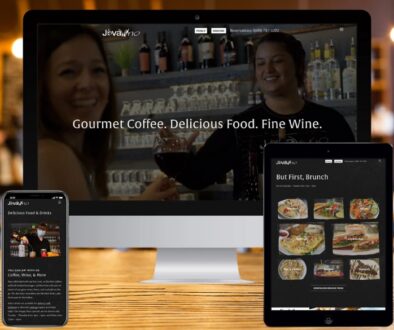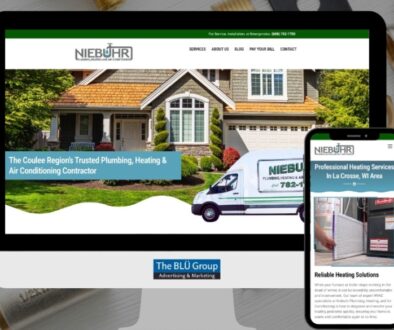8 Technologies Marketers Can’t Live Without
In real estate, the three most important things are location, location, location. And, the three most important areas to pay attention to in marketing today are automation, automation, automation.
Here are the eight technologies that you can use in any size business to automate and organize your sales and marketing process. These recommendations cover every price point and every intensity level. Take some time to review them and see which of these you’d like to incorporate into your business.
Warning: Don’t take on too many new applications at once. You’ll get frustrated and overwhelmed. Instead, choose an area you’d like to automate, then do some research. Try the free trial first. Make a concerted effort to work with each tool until it becomes an integrated part in your process before you take on something new.
1. Customer relationship management tools
CRM tools help you manage the sales process. Sales software has changed from the clunky downloaded contact management systems of the past. They are now sleek social media and mobile integrated platforms that will help you build and develop relationships at any price point.
- Nimble is ideal for companies who build relationships and opportunities through social media introductions such as LinkedIn or Twitter. My favorite feature turns Tweets and comments into action items.
- Salesforce is a favorite for both big and small businesses. It has always had great reporting tools and now it has jumped into the social space.
- ACT has been around for decades and was one of the first in the CRM field. ACT is a great choice if you only want to pay once and have access to your information on your desktop or in the cloud.
2. Marketing automation
Marketing is a process, like sales or manufacturing. Raw materials come in and customers emerge. Tools like SalesForce have add-ins or apps that include a marketing-process management module. When you’re choosing a platform, consider where your marketing is focused: inbound or outbound.
- HubSpot handles inbound marketing. Hubspot attracts your ideal customer to your site and moves them toward becoming a customer.
- Marketo is an enterprise solution to manage complex outbound-marketing strategies, as well as inbound.
3. E-mail marketing
There is no excuse for not using an e-mail marketing technology in any business. Every business should be collecting e-mails from its prospects and customers. Once you have these e-mails, you can send “nurture campaigns” that consist of educational and informational e-mails, newsletters and special offers to your customers.
- aWeber is one of the most popular e-mail marketing platforms and is a popular choice of bloggers and online marketers. Their strength is in customer service and in sending unlimited follow-up e-mails.
- Constant Contact is a fan favorite of many B2C and retail businesses. Constant Contact has terrific newsletter options and many templates that make it easy to send offers to customers.
- MailChimp is the ideal tool for small businesses who want to test campaigns and see their stats from social media sites. The analytics and reporting are what set MailChimp apart from the rest.
- Get Response is ideal for beginners and first-time users who would like flexible templates. Another interesting feature is that it offers more than 1,000 iStock photos.
4. Analytics
The old quote about not knowing which 50 percent of your marketing budget is effective is no longer true. Web analytics can tell you exactly which aspects of your site are most effective.
- Google Analytics is a goldmine of information and best of all it’s free. Take the time to learn about who comes to your site and where they are coming from.
- Web Site Optimizer is also from Google and allows you to test several versions of your Web pages to see which gets more clicks.
- Wordtracker is a keyword research tool for search engine optimization and link-building. You can use the keyword-suggestion tool to develop the core keywords for your website.
- Optimizely is an online application that makes A/B comparison-testing easy for anyone to do. The best feature of this application is the WYSIWYG way that you can tweak your site to test which version works best.
5. Community platforms
These are ideal for businesses that find social media ineffective for interacting with their customers, distributors or prospects.
- Ning got a lot of flack when it started charging for many of its free features. But don’t let that stop you. Ning is still an easy way to create a private online community at a low price.
- BuddyPress is a great plugin to build your private community if you’re using a WordPress platform.
6. Social media management
You don’t have to be overwhelmed by social media if you’re using the right tools to streamline your marketing. Each of these tools helps you to automate and delegate your Twitter, Facebook, LinkedIn and other social media platforms. Each platform is loaded with functions. I’ve outlined just a few that set them apart.
- The free version of HootSuite offers so much functionality, you may never have to upgrade. The upgraded version lets you create a team of people who post to your social media accounts.
- You can automate and manage your Twitter and Facebook streams with MarketMeSweet, a free tool. It has a unique “dot” system that allows you to delegate and organize your tweets.
- SocialOomph is one of the most popular Twitter management tools. Like other tools, it allows you to schedule your Twitter and Facebook updates, and it can send you summaries of your @replies.
7. Online research
You don’t have to spend thousands for high-quality market research anymore. These online survey tools will practically make you a pro. The tools will help you program, launch and analyze your survey but they can’t guarantee good results. It’s worth it to hire some professional help to design your survey.
- Zoomerang is my favorite choice for ready-to-use survey templates.
- SurveyMonkey is best-known for some of the easiest-to-use survey tools that newbies and professionals can both use.
- SurveyGizmo is comparatively new to the online-survey crowd. It prides itself on answering the phone, so beginners will always be able to get a real person to help.
- QuestionPro has the best data-analysis and reporting systems. If you know your way around developing surveys and want high-end analysis and reporting for a low price, this is your choice.
8. Prospecting and list-building
Getting and keeping customers is on the top of all of our lists. While you can buy lists from InfoUSA, here are a few other sources you may not have considered.
- InsideView offers pre-call contact information that will help your sales team learn more about prospects so they can build a better foundation for that first sales call.
- JigSaw comes from SalesForce. It provides complete contact records and detailed information on companies so that you can plan your sales territories.
Check out these marketing-technology tools and applications and create more time to make more money.
Ivana Taylor, Marketing Strategist
Ivana Taylor is the president of the strategic marketing firm, Third Force and the publisher DIYMarketers.com. Ivana is the Book editor and contributing marketing expert for Small Business Trends (www.smallbiztrends.com). She writes the popular blog Strategy Stew (www.strategystew.com). She is currently #21 of Fast Company’s list of most influential people on the internet .



